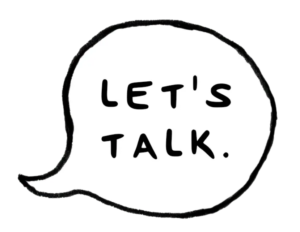Talking about mental health
The way we think about mental health affects how comfortable we are when we need to talk about it, or look for support.
What can you do?
Talk. Listen. Replace awkward silence with questions and understanding. Talk about the stressors and challenges you face and encourage others to talk with you about theirs. Spread the word that people aren’t to blame for mental health issues, and that professional treatment works.
The Problem
When mental health is viewed as an issue that only affects “other people,” those of us who need to talk about our mental health are shamed or discouraged, they don’t feel safe talking about their needs or seeking care.
Starting the conversation.
Remember to listen first and show compassion. Too often, people who try to talk about their mental health are excluded or ignored, or told to “snap out of it,” or “get tough.” Challenges to our mental health can’t be willed away, and people brave enough to open up about those challenges aren’t merely seeking attention.
Past and present.
Historically, society has viewed mental health issues as a sign of weakness, but in the last half-century we’ve learned so much more about how our brains work. We now know that challenges to positive mental health are nobody’s fault and the discussion applies to everyone, no matter how temporary or serious their mental health needs are.

